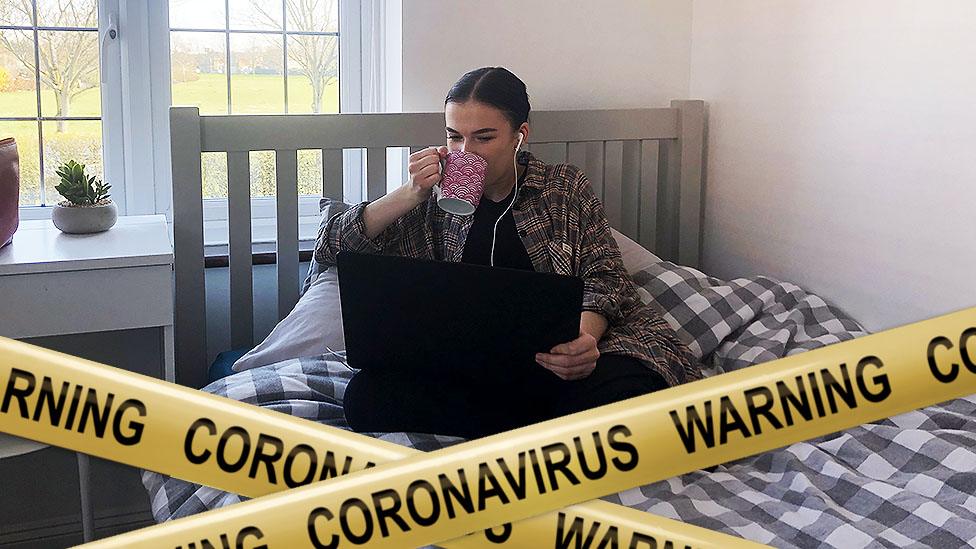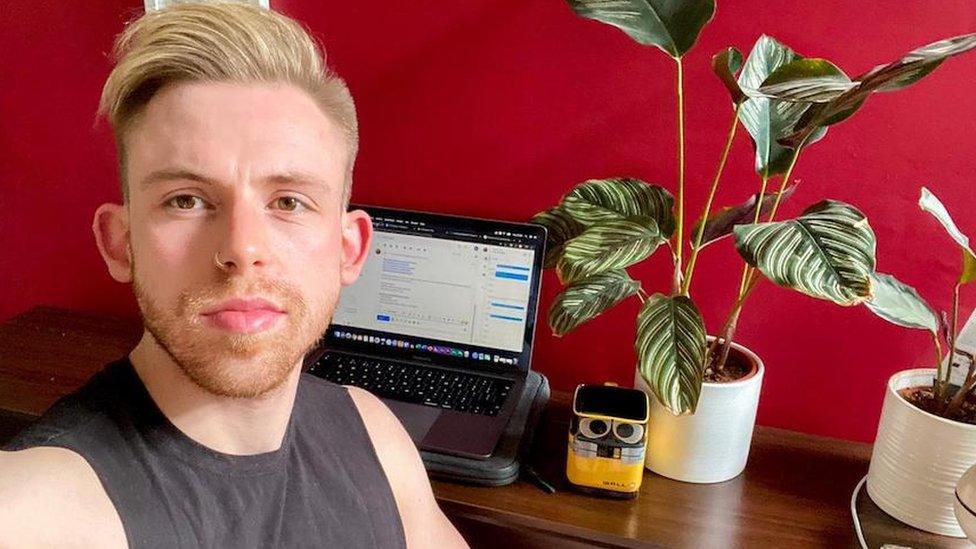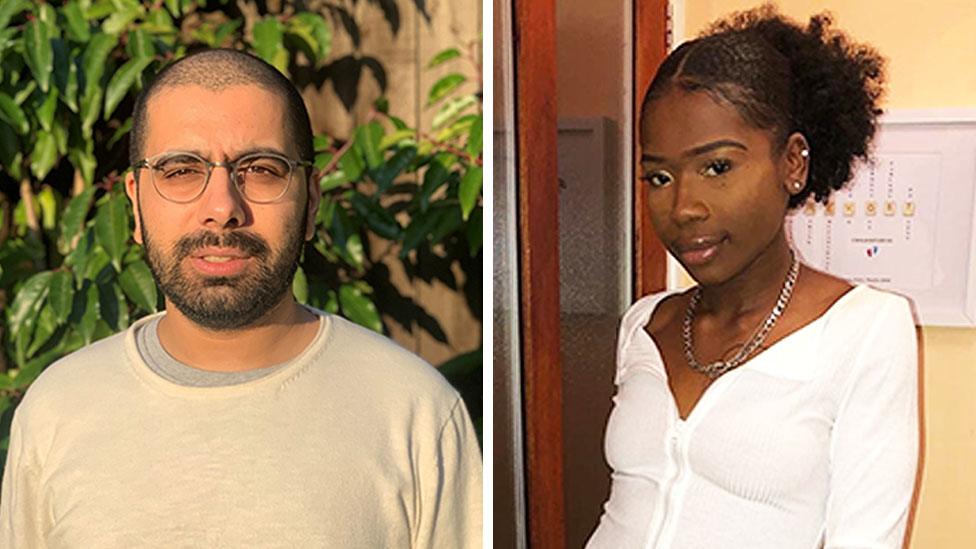Coronavirus and anxiety: 'Following the news made me have a panic attack'
- Published

You wake up, switch on the news, scroll through social media and see endless posts about coronavirus.
Suddenly you've got a headache and your throat begins to feel dry. The symptoms are there when you're worried but disappear when you're distracted.
Right now it's normal to be worried about what you're seeing, reading and hearing on the news but if you do have anxiety, worries about the virus could be making your symptoms worse.
But if that is the case, you're not alone and there are some simple steps you can take to reduce the stress the coronavirus might be causing you.
'I feel ill after coronavirus chat'
Lucy is 25 and a childcare worker in Bridgend. The first thing she hears when she gets to work is her colleagues talking about is how coronavirus is affecting everyone.
"That's when I start to get some symptoms like coughing and a really tight chest", Lucy tells Radio 1 Newsbeat.
"I'm very stressed and there's a lot of uncertainty in my job which isn't helping at the moment. I'm worried about what's going to happen to our country."
There are times when Lucy forgets about how she's feeling and the symptoms seem to go away.
"That's usually in the morning when I wake up and when I get home from work and I'm relaxing. They might pick up again if I carry on listening to the news," she adds.

EASY STEPS: How to keep safe
A SIMPLE GUIDE: What are the symptoms?
CONTAINMENT: What it means to self-isolate
HEALTH MYTHS: The fake advice you should ignore
MAPS AND CHARTS: Visual guide to the outbreak
VIDEO: The 20-second hand wash

Gezamin Parry, 23, lives in Lincoln and is also anxious because of coronavirus - and it's something she says she normally doesn't suffer from.
She's had a tight chest and heart palpitations and says her feelings get worse when she's on her own "because it's all I can concentrate on".

Gezamin says she didn't suffer from any form of anxiety before the coronavirus outbreak
"When I'm with my siblings watching something or just distracted in general they subside. It could be that I just don't notice them," she says.
"If there wasn't a virus looming I definitely wouldn't be as worried about these symptoms, I'd probably even dismiss them entirely."
Sam Johnson, who's 26 and from Manchester, says it was following the news that caused him to have a panic attack recently.
"I felt like I was struggling to breathe. I tried drinking water, taking deep breaths but nothing was working, so I called my friend and she thought I was having a panic attack," he says.

Sam had a panic attack and believes it was caused by following the news
Sam was told there was an hour wait to speak to someone when he called the NHS 111 service.
"I watched some Netflix and felt better when I was distracted, and managed to fall asleep around midnight. I woke up the next morning and felt fine.
"I'm now making sure I'm not inside one room watching the news all day. It's important to take a break."
People may 'misinterpret' symptoms
A spokesperson for mental health charity Mind says people who have anxiety may sometimes interpret the symptoms of their condition with a physical illness.
"Someone with health anxiety might have obsessions and compulsions relating to illness, including researching symptoms or checking to see if they have them, says Rosie Weatherley from Mind.
"They might misinterpret the physical signs of anxiety, such as a fast heart rate or dizziness, as symptoms of a serious physical illness, like a heart attack."
However Rosie stresses it's important to remember "there's a difference between having anxiety, a diagnosable mental health condition, and feeling anxious because of coronavirus."
The WHO - that's the World Health Organisation - recently shared advice on how to deal with stress during the coronavirus outbreak.
Some of the advice included:
Avoid watching, reading or listening to news that could cause you to feel anxious or distressed.
Seek information mainly to take practical steps to prepare your plans and protect yourself and loved ones.
Seek information updates at specific times.
Think about switching off or limiting what you listen, watch or read.
What else can you do?
People who are suffering from anxiety related to the coronavirus outbreak are advised by Mind to stick to a daily routine and make sure they get some physical exercise every day.
The charity also recommends limiting the news you consume, taking breaks from social media and making regular calls to friends and family.
It says getting into nature can help anxiety, even if that's looking after a pot plant or watching birds out of your window.


Follow Newsbeat on Instagram, external, Facebook, external, Twitter, external and YouTube, external.
Listen to Newsbeat live at 12:45 and 17:45 weekdays - or listen back here.
- Published27 March 2020

- Published22 March 2020

- Published23 March 2020
